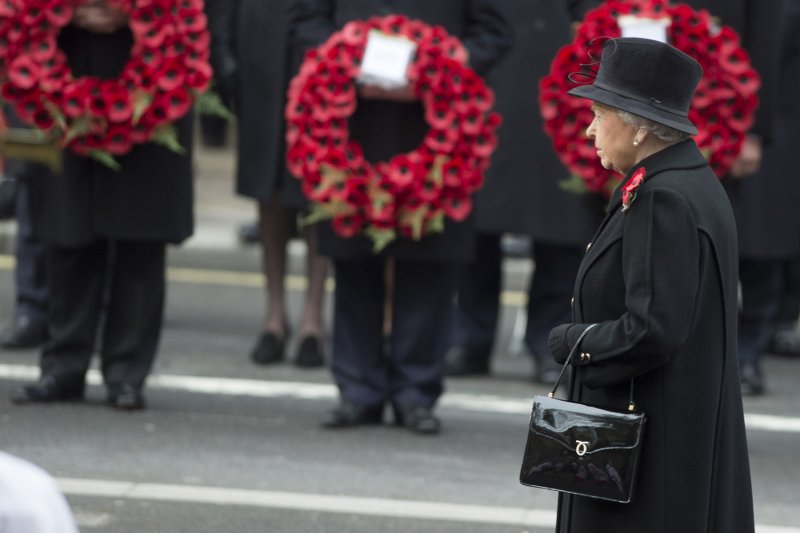1 of 2 | Queen Elizabeth II will make her first visit to a Nazi concentration camp, Bergen-Belsen, on Friday as part of a four-day state visit in Germany. File Photo by Rune Hellestad/UPI |
License Photo
BERLIN, June 24 (UPI) -- Queen Elizabeth II met with German Chancellor Angela Merkel on Wednesday in Berlin as part of the monarch's four-day state visit.
Elizabeth, 89, is widely popular in Germany. She is not referred to as the word queen in German, koningin, but fondly as "Die Queen" (The Queen).
She met the Chancellor at the Chancellery, Merkel's official workplace, which is close to the Reighstag, where Germany's Bundestag parliament meets. The women have met three times before, but this is the first in Germany.
Thousands of people greeted "Die Queen" as she made her way through the River Spree on a boat tour. Thousands more are expected to catch a glimpse of the queen during her visit.
Elizabeth will also make her first visit to a Nazi concentration camp, Bergen-Belsen, on Friday.
Bergen-Belsen, where diarist Anne Frank died, was the only concentration camp liberated by the British.
Elizabeth was first greeted by President Joachim Gauck at Bellevue Palace, his official residence.
Simon McDonald, the British Ambassador to Berlin, said Germans respect the Queen because of her demeanor and what she represents.
"She stands for reliability, continuity, stability, she is the focus of national attention and if there is a national event or a national crisis she is the embodiment of the national spirit," McDonald said. "That is something that the Germans appreciate, it's almost a kind of nostalgia for them -- if things had worked out differently they would have had something similar, but they don't."















